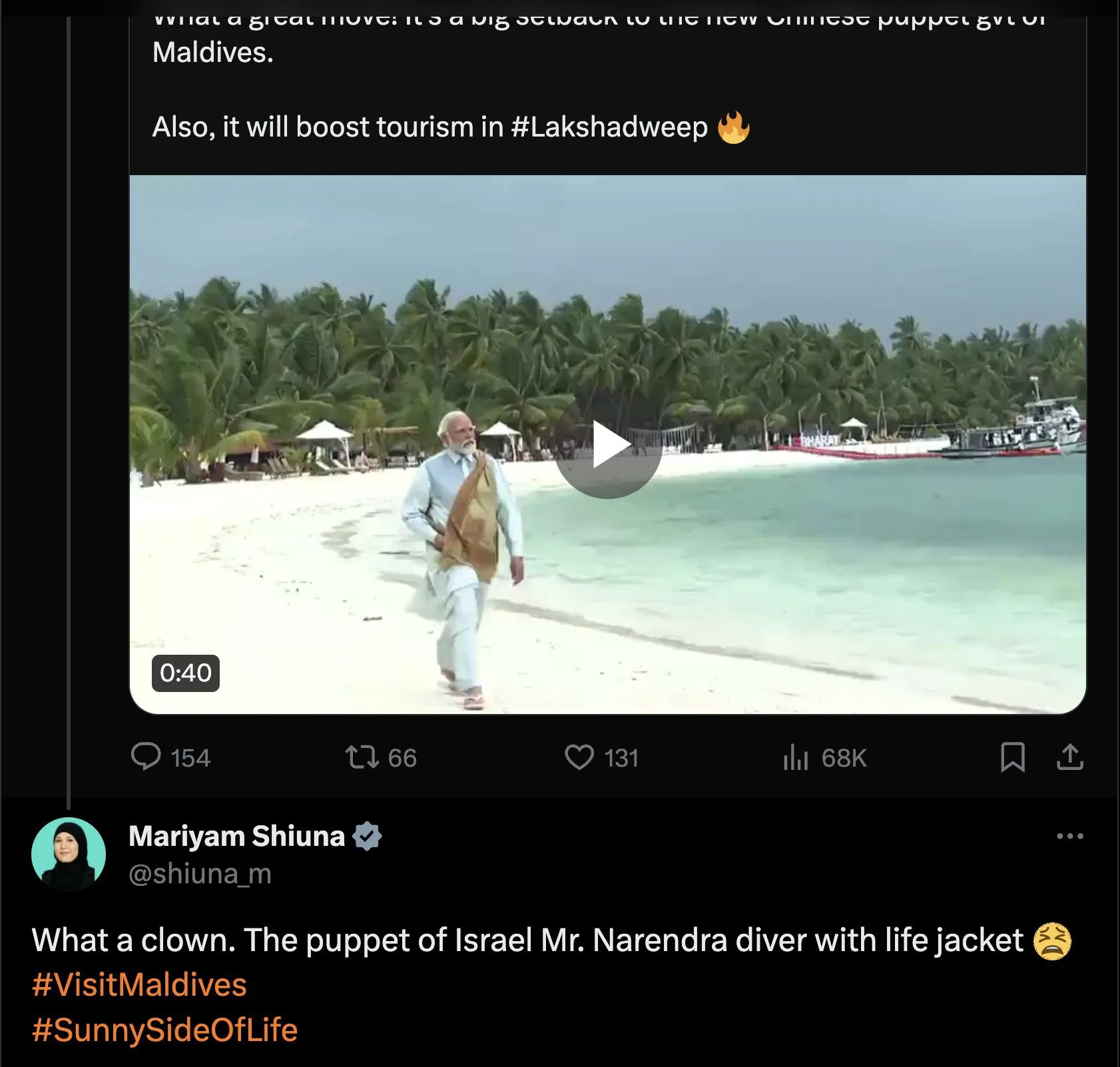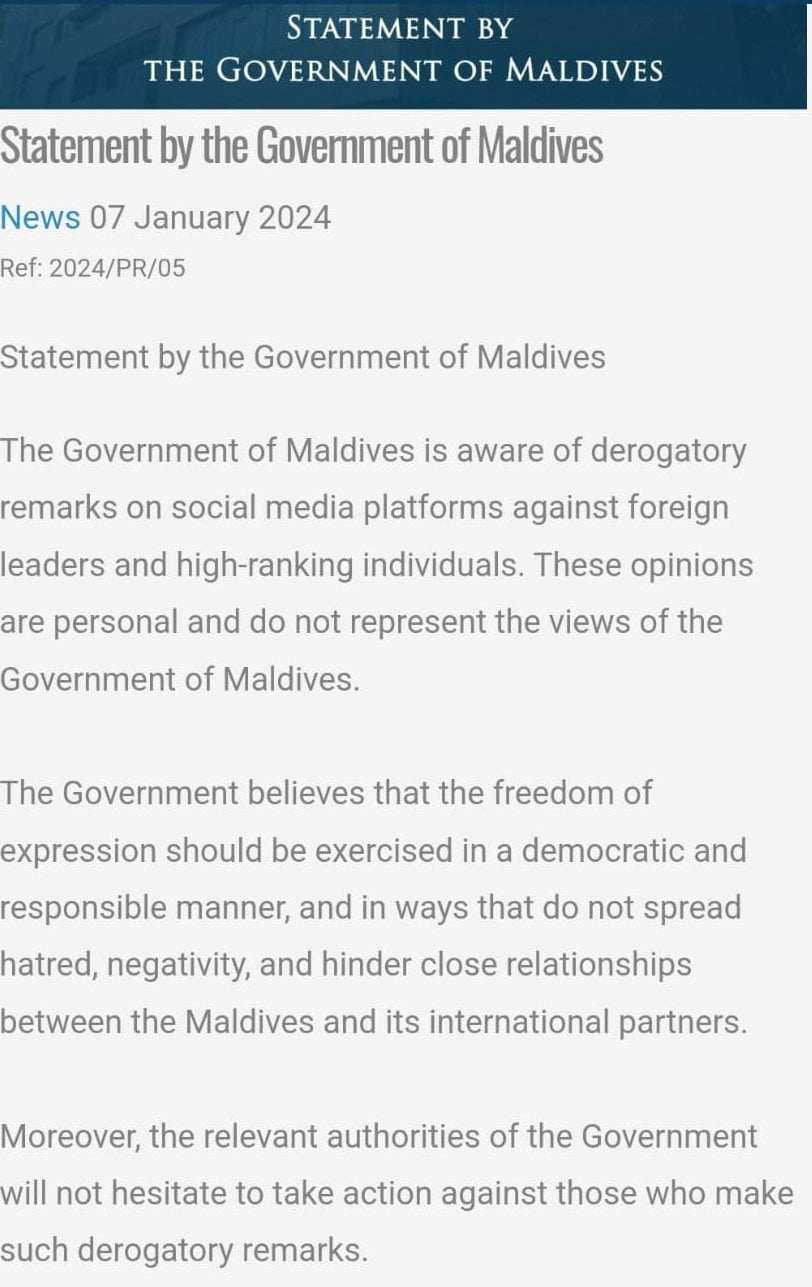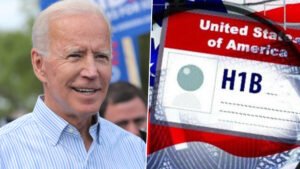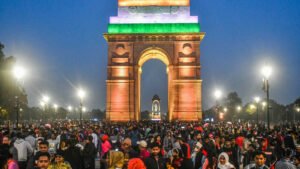Maldivian Ministers Suspended Amidst India-Maldives Controversy
In a surprising turn of events, three ministers from the Maldives government found themselves suspended following their critical remarks against India and Indian Prime Minister Narendra Modi. This unexpected development has caused a stir, leading to a deeper analysis of the issue and the subsequent responses.
Prime Minister Modi’s Instagram post on January 5, featuring him on a beach in Lakshadweep, seemed innocuous at first glance. However, it quickly ignited controversy and the potential for strained relations between India and Maldives. The three deputy ministers from the Ministry of Youth Affairs in Maldives—Mariyam Shiuna, Malsha Sharif, and Masoom Masjid—escalated matters by making negative comments about India and the Prime Minister after his recent Lakshadweep visit.
The Controversy
The controversy started on social media platform X (formerly known as Twitter), where Maryam Shiuna referenced India’s connections with Israel. Her colleagues joined the discourse, suggesting that Prime Minister Modi’s visit aimed to challenge Maldivian tourism, renowned for its beachside amenities.

Statement from Maldives government
Reacting to the situation, the Indian government raised the issue with Maldives, prompting the latter to suspend the three ministers. In an official statement, the Maldives government clarified that the derogatory remarks were personal opinions and did not reflect the government’s views. The government emphasized its commitment to freedom of expression but called for responsible exercise of this right.

Diplomatic Importance
This incident adds a new layer to the India-Maldives relationship, which holds significant importance as India’s crucial maritime neighbor in the Indian Ocean Region (IOR). Maldives plays a special role in initiatives like ‘SAGAR’ (Security and Growth for All in the Region) and aligns with India’s ‘Neighborhood First Policy.’ The recent spat follows President Mohamed Muizzu’s call for India to withdraw its military presence in the Maldives archipelago, a request made shortly after his swearing-in ceremony in November 2023.
President Muizzu’s upcoming visit to China raises eyebrows, especially after Chinese state media outlet Global Times praised his foreign policy. The outlet suggested that Muizzu’s approach indicates a normalization of the relationship between the Maldives and India.
The fallout from this controversy is not limited to diplomatic circles. Indian celebrities, sportspersons, and business founders have taken to social media, expressing their desire to explore Lakshadweep. However, the row has led to a social media war, impacting tourism. Many Indians are canceling their holiday bookings in the Maldives, and screenshots of these cancellations are trending on X. The hashtag #ExploreIndianIslands is also gaining traction on X, sparking discussions about Indian beaches and islands.
Conclusion
the Lakshadweep controversy has far-reaching consequences, not just diplomatically but also in the realm of social media and tourism. The India-Maldives relationship faces a challenging moment, and the fallout resonates across various sectors, including the travel industry.




1 thought on “India-Maldives Controversy: Lakshadweep Remarks Lead to Minister Suspensions”
Informative👍👍